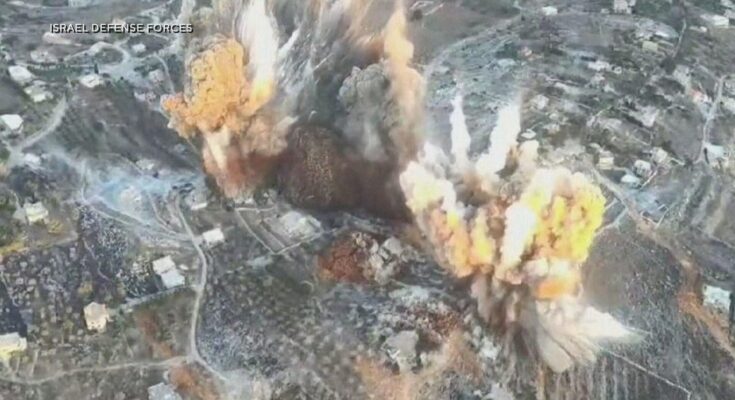Rising Tensions in the Middle East: Uncertainty after Israel’s Retaliatory Strikes on Iran
The ongoing conflict between Israel and Iran has once again escalated with Israel’s recent retaliatory strikes on Iranian targets. The airstrikes have added a new layer of uncertainty to an already volatile situation in the Middle East. The impact of these strikes is being felt not only in the region but also around the world.
Background of the Conflict
The animosity between Israel and Iran is nothing new. It stems from a deep-seated rivalry over religious, political, and territorial issues. Iran, a predominantly Shiite Muslim country, has long been a vocal critic of Israel and its treatment of the Palestinian people. On the other hand, Israel sees Iran as a threat to its very existence, given Iran’s support for anti-Israeli militant groups like Hezbollah.
Israel’s Retaliatory Strikes
In response to what it perceived as a threat from Iranian forces in Syria, Israel launched a series of airstrikes targeting Iranian positions. The strikes were just one part of a larger campaign by Israel to counter Iran’s influence in the region. However, the timing and scale of these strikes have raised concerns about the potential for further escalation.
Impact on Regional Stability
The airstrikes have further destabilized an already precarious situation in the Middle East. Countries in the region, particularly Lebanon and Syria, have expressed fear about being caught in the crossfire between Israel and Iran. The uncertainty surrounding the conflict has left many wondering what the future holds for the region.
International Response
The international community has been quick to condemn the violence and urge restraint on all sides. The United Nations has called for a peaceful resolution to the conflict and has offered to mediate talks between the two warring factions. However, with tensions running high, the prospect of a diplomatic solution seems increasingly unlikely.
Economic Fallout
The conflict between Israel and Iran has had reverberations beyond the political and military spheres. The uncertainty and instability in the region have already begun to impact global markets. Oil prices have surged in response to fears of supply disruptions, while investors have grown increasingly wary of investing in the volatile region.
The Human Cost
Amidst the political maneuvering and military posturing, it is all too easy to forget the human cost of conflict. Civilians in Syria, Lebanon, and Israel have already borne the brunt of the violence, with reports of casualties mounting on both sides. The uncertainty surrounding the conflict only serves to deepen the suffering of those caught in the crossfire.
Looking to the Future
As the dust settles on Israel’s retaliatory strikes on Iran, the future remains uncertain. Will the two sides be able to find common ground and de-escalate tensions? Or are we on the brink of a larger and more devastating conflict in the Middle East? Only time will tell, but one thing is clear: the stakes could not be higher.
In conclusion, the uncertainty after Israel’s retaliatory strikes on Iran looms large over the Middle East. The conflict has the potential to shape the future of the region for years to come. As we navigate these uncertain times, it is imperative that we work towards finding peaceful and sustainable solutions to the ongoing crisis. Only through dialogue and cooperation can we hope to build a more stable and secure future for all those affected by the conflict.



